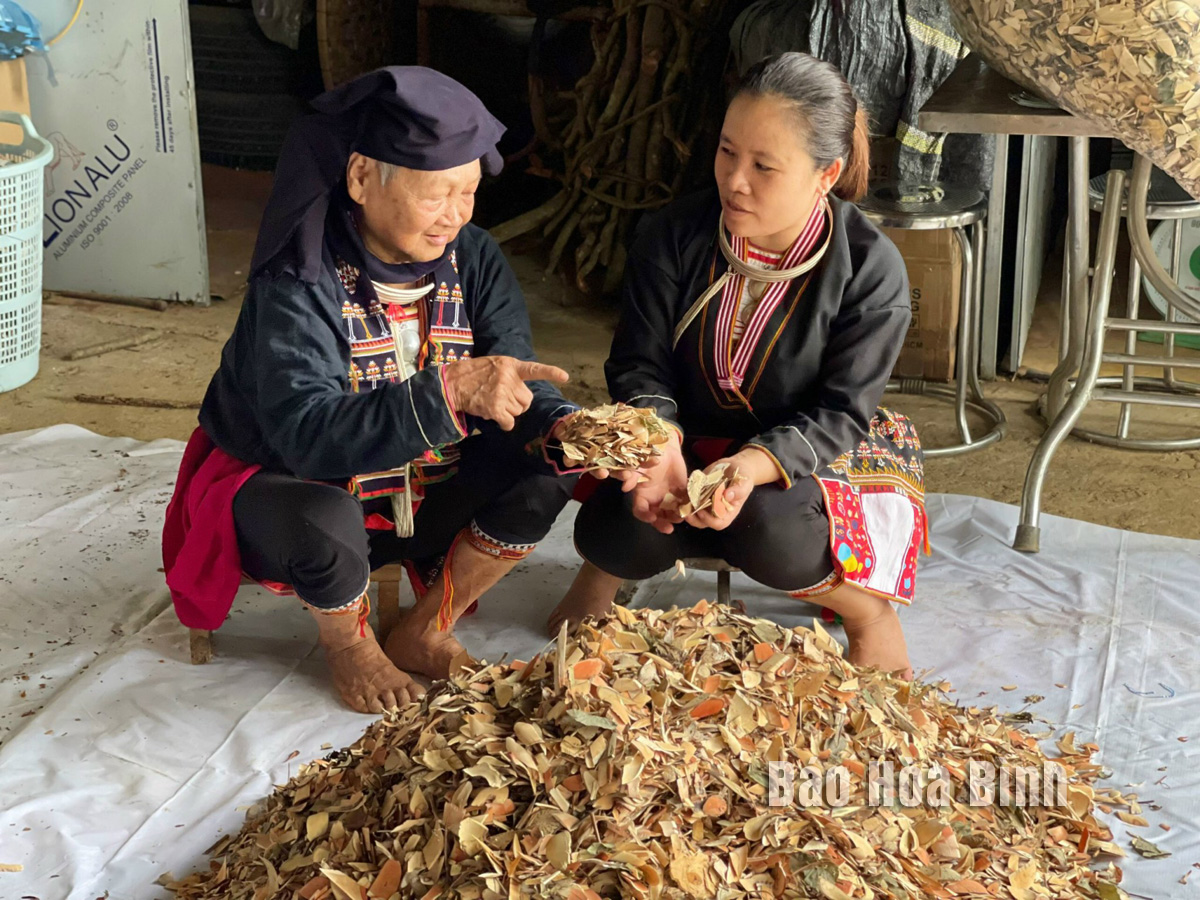
Hoa Binh currently has 123 medicinal herb products recognised by OCOP (One Commune-One Product) Programme items, affirming the locality’s prestige and trademark in the market.
Developing the traditional medicine of the Dao people, Ngoc Sang Cooperative in Bac Phong commune, Cao Phong district has successfully produced Ngoc Sang black turmeric product.
Xa den (Celastrus hindsii Benth) and Ca gai leo (Solanum trilobatum Linn jelly products of the Tuyet Nhi Cooperative in Cao Duong commune of Luong Son district are among 24 OCOP products rated with four stars of Hoa Binh in 2022. The products are used to treat a number of liver diseases and inflammation, detoxify the body, prevent cancer, and aid cancer treatment. With an abundant material supply source, the cooperative has successfully produced the products, meeting customers’ demands.
Along with these products, Hoa Binh also has many famous medicinal herbal product brands, including Yen Thuy Ca gai leo jelly, Ca gai leo tea bags, and Nhung Van turmeric starch.
All the products have been certified to have good effects on people’s health, with ensured production process and clear origin.
Recognising the province’s advantages, localities across Hoa Binh have focused on developing herbal plant farms and processing medicinal herbs following traditional recipe. In 2023, many new OCOP products in the field of medicine have been recognised.
Bui Van Dan, head of the Agriculture and Rural Development Division of Cao Phong district, said that Dao ethnic minority people in Bac Phong commune have kept many effective traditional medicine recipes, including the use of Nghe den (Curcuma zedoaria) to treat digestive diseases. Basing on the recipe, Ngoc Sang Cooperative has successfully researched and produced Curcuma zedoaria jelly to provide to the market.
The cooperative has cooperated with local farmers to develop a 10-hectare Curcuma zedoaria material region, which has improved economic situation in the locality. Local authorities have assisted the cooperative to expand its production by developing the farming areas of other herbs that can combine with Curcuma zedoaria to make traditional medicine, said Dan.
In 2018, the People’s Committee of Hoa Binh issued Decision No. 3119/QD-UBND approving a project to develop medicinal plants in Hoa Binh province until 2025 with a vision to 2030.
Accordingly, the province has focused on designing planning for forest and natural herbal plant areas to preserve the endemic, indigenous, valuable, and endangered genetic resources serving sustainable development, while selecting and reasonably exploiting 10 kinds of herbal plants with a volume of 8,000-9,000 plants each year.
Meanwhile, Hoa Binh plans to build four conservation areas of Hang Kia, Pu Canh, Thuong Tien, and Ngoc Son, which are expected to become areas to grow many medicinal plant species collected in different localities, serving scientific research and development of medicinal materials. Hoa Binh aims to conserve 70% of typical local medicinal species by 2025 and 100% by 2030.
Four incubation will be built to provide medicinal varieties for the needs of large-scale medicinal planting and development in four districts of Tan Lac, Lac Thuy, Yen Thuy, and Lac Son. This is an important premise for the province to develop OCOP medicinal products.
The provincial agricultural sector has asked districts and cities to focus on building preferential policies for the production and selling of medicinal herbs and herbal medicine products, and supporting local firms in applying high technologies during the research, and production of herbal medicine products./.
In Lac Thuy district, communes have been succeeded in promoting their One Commune-One Product (OCOP) products while others are still struggling to position their typical farming products in market. Some communes in the district still fail to have their products met OCOP programme’s requirements, while others have seen their certifications expired.
The inspectorate agency of Hoa Binh province has issued Official Dispatch No. 1090/TTr-PCTN to provincial departments, agencies, localities, business associations, enterprises, and investors regarding measures to improve informal component indexes of the Provincial Competitiveness Index (PCI).
Hoa Binh is taking concrete steps to improve its investment environment, with a strong focus on supporting businesses, settling obstacles for strategic investors, and creating opportunities for robust development in the coming years.
Under the blazing early summer sun, the construction site of Nhuan Trach Industrial Park (IP) in Luong Son district is abuzz with activities from dawn to dusk, a testament to the determination of the investor to meet their construction targets on schedule.



